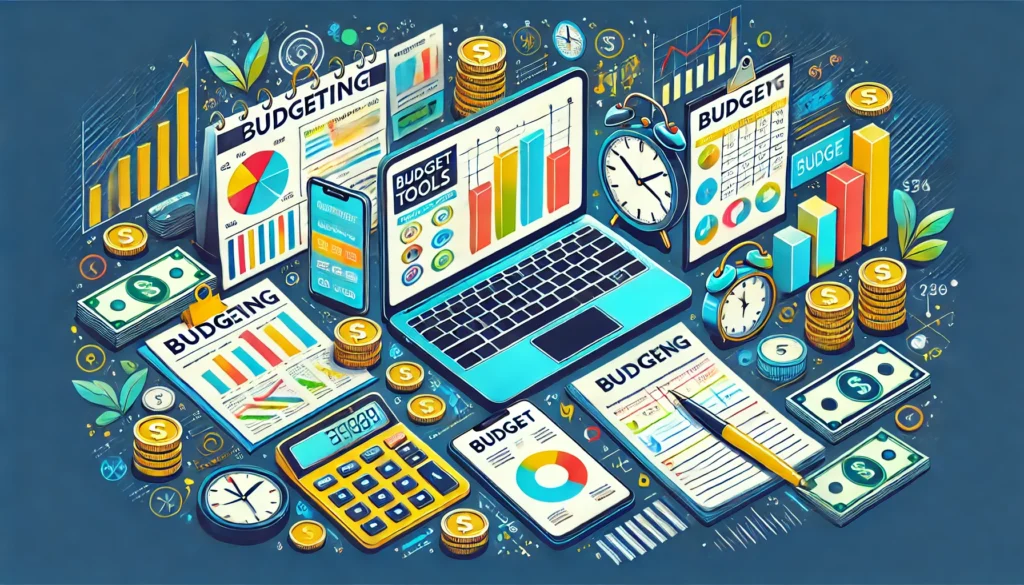In today’s fast-paced world, managing personal finances can feel overwhelming. Fortunately, a plethora of budgeting tools are available to help you take control of your money. From simple spreadsheets to sophisticated software, these tools can empower you to track your spending, save for your goals, and achieve financial freedom.
Specific Statistics (Source: Various Financial Research Firms and Surveys)
- Over 50% of Americans say they don’t have a budget.
- 78% of people with budgets say they are better off financially.
- People who use budgeting apps are more likely to save money and pay off debt.
- Mint, YNAB, and PocketGuard are among the most popular budgeting apps.
- Spreadsheet users often prefer a more hands-on approach to budgeting.
- Online budgeting tools are gaining popularity due to their accessibility and user-friendly interfaces.
- Budgeting software is often used by individuals with complex financial needs.

Understanding Your Financial Landscape
Before diving into the world of budgeting tools, it’s crucial to have a clear understanding of your financial situation. This involves tracking your income and expenses. By knowing where your money is going, you can identify areas where you can cut back and save.
The Power of Budgeting Tools
Budgeting tools can streamline this process, making it easier to manage your finances effectively. Here are some of the most popular types:
1. Budgeting Apps
Budgeting apps have revolutionized personal finance management. They offer a user-friendly interface and a range of features to help you stay on track. Some popular options include:
- Mint: A comprehensive financial dashboard that tracks your spending, bills, and investments.
- YNAB (You Need A Budget): A zero-based budgeting app that helps you allocate every dollar of your income.
- PocketGuard: An AI-powered app that analyzes your spending habits and provides personalized recommendations.
2. Budgeting Spreadsheets
For those who prefer a more hands-on approach, budgeting spreadsheets are a great option. You can create your own spreadsheet or use a pre-built template. Spreadsheets offer flexibility and customization, allowing you to tailor your budget to your specific needs.
3. Online Budgeting Tools
Online budgeting tools provide a web-based platform to manage your finances. They often offer features like expense tracking, budgeting templates, and financial reports.
4. Budgeting Software
Budgeting software offers advanced features like investment tracking, tax planning, and retirement planning. While they may be more expensive than other options, they can be valuable for individuals with complex financial needs.
Choosing the Right Budgeting Tool
When selecting a budgeting tool, consider the following factors:
- Your financial goals: Are you saving for a down payment, retirement, or a vacation?
- Your tech-savviness: Do you prefer a simple spreadsheet or a complex software program?
- Your budget: How much are you willing to spend on a budgeting tool?
- Your lifestyle: Do you need a tool that can track your spending on the go or one that you can use on your desktop?
Tips for Effective Budgeting
- Set realistic goals: Break down your long-term goals into smaller, achievable steps.
- Track your spending: Use your chosen budgeting tool to monitor your expenses closely.
- Create a budget: Allocate your income to different categories, such as housing, transportation, and food.
- Review your budget regularly: Adjust your budget as needed to accommodate changes in your income or expenses.
- Automate your finances: Set up automatic payments for bills and transfers to your savings account.
- Be flexible: Unexpected expenses may arise, so be prepared to adjust your budget accordingly.
10 FAQs About Budgeting Tools:
- What is a budgeting tool? A budgeting tool is a financial tool that helps you track your income and expenses to manage your money effectively.
- Why should I use a budgeting tool? Budgeting tools can help you:
- Track your spending
- Save money
- Reach your financial goals
- Reduce financial stress
- What are the different types of budgeting tools? There are several types of budgeting tools, including:
- Budgeting apps
- Budgeting spreadsheets
- Online budgeting tools
- Budgeting software
- How do I choose the right budgeting tool? Consider your financial needs, tech-savviness, and budget when choosing a budgeting tool. Look for a tool that is easy to use and offers the features you need.
- Can I use a budgeting tool to track my investments? Many budgeting tools offer investment tracking features, allowing you to monitor your portfolio’s performance.
- How often should I review my budget? It’s recommended to review your budget at least once a month to track your progress and make adjustments as needed.
- Can budgeting tools help me pay off debt? Yes, budgeting tools can help you create a debt repayment plan and track your progress.
- Are budgeting tools secure? Most budgeting tools use strong security measures to protect your financial information. However, it’s important to choose reputable tools and follow best practices for online security.
- Can I use a budgeting tool to set financial goals? Yes, many budgeting tools allow you to set and track financial goals, such as saving for a down payment or retirement.
- Is it expensive to use a budgeting tool? Many budgeting tools are free or offer affordable subscription plans.
By utilizing the right budgeting tool and following these tips, you can take control of your finances and work towards a brighter financial future. Remember, the key to successful budgeting is consistency and discipline. With a well-crafted budget and the right tools, you can achieve your financial goals and live a more fulfilling life.
